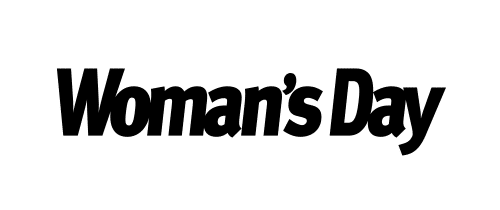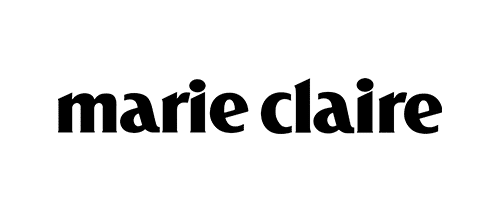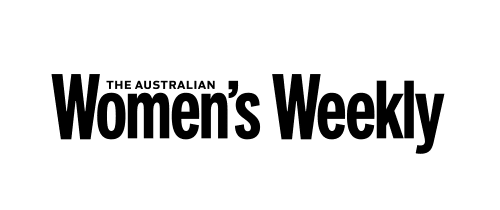Stella was SO excited to speak to our incredible friend Georgie Dent and introduce her as this month’s Stella Successful Women Series contributor for November. Georgie’s achievements go well beyond journalism and we must admit she has quite quickly become our go-to for all things empowerment when it comes to women and parental rights.
Georgie Dent is a journalist, commentator and mum of three, her work has been published in The Financial Review, The Sydney Morning Herald and the Age, Marie Claire, Harpers Bazaar, The Guardian and news.com.au just to name a few. She has more than 30,000 followers between Twitter, Facebook & Instagram who enjoy her sharp and witty commentary on women, politics, health, money, family and everything in between.
Georgie is also the best-selling author of Breaking Badly How I Worried Myself Sick – a memoir recounting the nervous breakdown she suffered at just 25, she has received rave reviews for her honest look at Mental Illness, her writing is admirably honest. Georgie has been extremely busy since then as the contributing editor to the much-loved Women’s Agenda as well as advocating for women, gender equality and families. Georgie is now the Executive Director of The Parenthood, which is a movement of 68,000 parents, carers and supporters working together to make Australia the best place in the world to be a parent.
If the above repertoire wasn’t enough, Georgie recently hit the headlines after she received a call from the Prime Minister’s office telling her that no one ‘credible’ shared her views that the October budget didn’t deliver for women … From pure frustration, after that call, the #crediblewomen hashtag was born and went viral in a matter of hours with other women also responding that the federal budget definitely didn’t deliver for women.
We are honoured to include her as this month’s leading lady for the Stella Women Series.
How is that for credible Mr Morrison?
Do you have any advice for our readers on how to balance the responsibilities of burgeoning professional life and being a mother?
Before I answer I’d like to say that a world in which more men and women can be engaged parents as well as having a career is the dream. As it stands that isn’t always possible and it won’t be universally possible until some big structural changes occur. (Eg changes that put men and women on equal footing!)
Within a flawed system that doesn’t support women or parents as well as it should, this is my advice.
It’s not always easy but there are a few things that help. First, the acceptance that having a career and being a parent does not need to be mutually exclusive. It is possible. That might sound trivial but if your mindset is ‘this is possible’ it’s much easier to navigate the inevitable challenges – big and small. (And there will be challenges big and small. Often!)
There will be mess and chaos but in my experience, that’s true of parenting whether you work outside the home or not. I derive so much satisfaction from my career and work and absolutely love being able to combine that with raising our three girls.
I have been legitimately #blessed in having a series of bosses and mentors who truly understood the juggle and gave me total flexibility to accommodate the girls and work – while also promoting me. The flexibility didn’t come at the cost of new opportunities. That alone – having understanding and supportive bosses – honestly makes the world of difference and it’s something that remains too rare.
Having a supportive partner and co-parent is also amazingly helpful. My husband has a very demanding job but is totally engaged on the homefront, with the girls and is my biggest champion. Without his unconditional support, it would be much more difficult to have built the career I have and balance it with our family responsibilities.
Feeling engaged and doing work that feels totally aligned with my purpose also helps. It is cliched but I genuinely love my work and that’s something that makes it much easier to persevere. But in the ten years, I’ve been a parent I have had a series of different work arrangements: I certainly haven’t worked doggedly without a break. I had decent stints off with all three girls when they were born and during those times I did quite happily forget about work and was happy to just relish the baby times.
I also haven’t worked full-time until quite recently. I’m very driven and would describe myself as hard-working but I also really enjoyed letting work take a back seat at different times.
From the 2020 budget what were the clear injustices you saw and spoke up about that impacted Australian women most?
It was the biggest spending budget in Australia’s history and came in the midst of a pandemic that had been particularly devastating to women & women’s employment, and yet just $240million, or 0.0385% of the many hundred billions of dollars spent, was allocated to ‘women’s economic security’. And, that amount was to be spent over four years. Women comprise slightly more than half the population and this recession has been described as ‘pink’ because of the detrimental impact it has had on women’s jobs and income.
And even before the pandemic hit women’s economic security was far too precarious. Against this backdrop, it was shocking that so little money was directed to women given the huge money being spent on projects and initiatives that would overwhelmingly benefit men.
What would you say are the specific traits and competencies that you think are key to be successful?
Integrity. Compassion. Tenacity. Humility. Hard work.
Define a great leader – what are some of the traits you think great leaders possess?
The leaders I admire most and have been grateful to have worked with are invariably thoroughly decent, compassionate human beings who lead with authenticity, humility and heart.
What advice do you have for women aiming for leadership positions?
To persevere and to be really clear on your why. In my experience staying connected with the ‘why’ of what drives and excites, you are a great exercise and guiding principle. If you have a very clear vision for what you want to achieve as a leader in any field you are already halfway there. I haven’t strategically planned my career at all but I have stayed really connected with what drives me – the desire for a more equitable Australia – and that has helped propel and progress my career at different times.
I also recommend finding champions and mentors and building a network of like-minded men and women in and around your field.
What are you/have you been reading lately?
Caitlin Moran’s book More Than A Woman is the last book I finished and I absolutely adored it. She is the funniest, sharpest writer – with a gigantic heart – and I think it ought to be mandatory reading.
What do you think is the most significant barrier to female leadership?
Australia does not offer women the same opportunities to participate in paid work as men and until that’s addressed it will be much more difficult for more women to become leaders. From the gender pay gap that begins as soon as men and women enter the workforce, to inadequate paid parental leave available, to some of the most expensive childcare in the world and deeply entrenched views about the roles of men and women, in Australia even in 2020, it is still much more likely that women care and men work.
Other countries have a smaller gap between men and women in the workplace, leadership positions and in homes because they have intentionally pursued policies that encourage and support both men and women as both carers and workers.
What woman inspires you most and why?
At this moment I cannot go past the Vice-President-elect Kamala Harris. She is living proof of what is possible and that just fills me with so much hope and joy. I will never ever forget watching her deliver that powerful and affecting acceptance speech. Tears were streaming down my face as she spoke about the challenges she sees women and girls still face.
What do you believe is the most pressing agenda, today, when it comes to Women’s equality?
I am a passionate advocate for universal access to high-quality early education and care for every child. This is the most compelling investment we can make in the future of Australia: when children have access to high quality early learning they have considerably improved health, educational and economic outcomes over the course of their lives.
And the other reason universal access to high-quality early education and care matters so much is the power to facilitate more women to participate in paid work. It’s the policy Australia needs to meaningfully reduce the inequity between men and women in Australia.
What is it about Stella that excites you?
The tagline “Insurance for women, by women” says it all. So much of the world in which we live was designed either by or for men. That’s what the Federal Budget made so clear so I am here for businesses and endeavours that seek to put women at the centre. We’re at least half the population so the more “for women, by women” we see in every realm the better!




